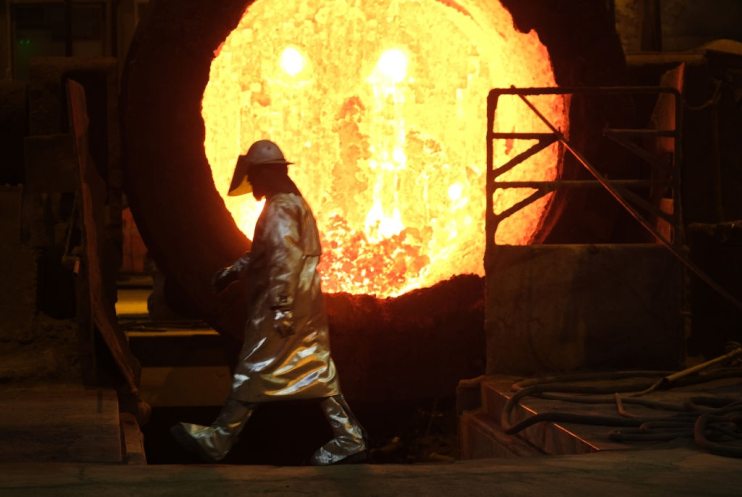Kwarteng considers support for steelmakers as rising energy costs bite

Steelmakers and other industrial manufacturers could be offered financial support from the government to ease spiralling energy costs.
Business Secretary Kwasi Kwarteng is weighing up the idea of making them exempt from network charges to ensure continued production, according to The Times.
Network charges are included in bills to help to maintain and upgrade Britain’s network of gas pipes and electricity cables that carry energy across the country, and are regulated by Ofgem.
UK Steel, the industry trade association, has warned that electricity prices for British steelmakers are significantly higher than those in France and Germany.
In Germany, steelmakers receive a 90 per cent exemption from network charging.
While British steelmakers benefit from incentives for using the electricity network at off-peak times, Ofgem is planning to reduce the incentives to even out the charges it levies on industrial and domestic users.
Steelmakers fear the move could push network charges up by almost 85 per cent to £17.50 per megawatt-hour.
The average electricity price Britain’s steel producers faced in 2021-22 reached £95 per megawatt hour (MwH), compared with the estimated German price of £59 and the French price of £63, according to UK Steel.
In September and October, the price disparity was more than £88 per MwH.
With commodity prices booming after Russia’s invasion of Ukraine, UK Steel warned that steelmakers were having “to assess day-by-day and hour-by-hour whether it is economically feasible to make steel”.
It has argued that the price disparity with its rivals is a “major barrier” to meeting Britain’s target of reaching net-zero carbon emissions by 2050, with options for decarbonising steel production leading to significantly increased electricity consumption.
Currently, British steelmakers produce seven million tonnes of crude steel a year, 70 per cent of the UK’s annual needs.
A government spokesperson told City A.M.: “We remain absolutely determined to secure a competitive future for our energy intensive industries, including the steel sector.”
“We have extended and increased our support for these industries, adding to the £2 billion we have already provided to help with the costs of energy and to protect jobs.”